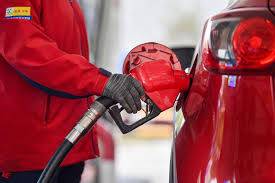Petrol Prices Go Down, Diesel Prices Maintained: What Does It Mean for Consumers?
In recent weeks, many consumers have noticed a dip in petrol prices, while diesel prices have remained stable. This shift has sparked debates and questions about the factors driving these changes and how they will impact different segments of society. While fuel prices are influenced by a wide array of global and local factors, the decision to keep diesel prices unchanged while reducing petrol prices raises several points for discussion. In this article, we’ll explore the reasons behind these price fluctuations and what they mean for consumers, the economy, and businesses.
One of the primary reasons behind the reduction in petrol prices and the maintenance of diesel prices is the fluctuation in global oil prices. Crude oil, which is the raw material used to produce both petrol and diesel, is traded on the global market and is subject to price changes based on supply and demand. Recently, there has been a decrease in global oil prices due to factors such as reduced demand, stronger-than-expected production from oil-producing nations, and geopolitical factors. Since petrol is generally more sensitive to global oil price movements than diesel, the reduction in crude oil prices has had a more significant impact on petrol, leading to lower retail prices. Diesel, on the other hand, is often less volatile and influenced by other factors like taxation and government policies, which could explain why diesel prices have remained stable.
Another reason for the differing trends in petrol and diesel prices is the way both fuels are taxed in many countries. Diesel is often taxed at a lower rate than petrol due to its importance in industries such as transportation, agriculture, and manufacturing. Diesel engines are also more fuel-efficient, which means that over time, a vehicle running on diesel consumes less fuel compared to one running on petrol. To support the industries that rely heavily on diesel, governments may opt to keep diesel prices stable to prevent the additional burden of fluctuating fuel costs. In contrast, petrol, which is more commonly used in personal vehicles and is often subject to more frequent adjustments, is more directly influenced by global price changes. Therefore, when global oil prices dip, the effects are often more directly felt at the petrol pump.
For consumers, the drop in petrol prices can be a welcome relief, particularly in countries where fuel costs make up a significant portion of household expenses. Lower petrol prices can lead to reduced transportation costs, which in turn can lower the price of goods and services. For businesses, especially those in logistics, delivery, and public transport, reduced petrol prices could help lower operational costs, potentially leading to more affordable services for consumers. However, the decision to maintain diesel prices at their current levels has implications for industries that rely heavily on diesel-powered vehicles. For example, transport companies, farmers, and manufacturers may still face high costs if diesel prices do not follow suit with the petrol price reductions, affecting their bottom line and potentially driving up costs for consumers.
On a larger scale, the decision to maintain diesel prices while reducing petrol prices also reflects broader economic and environmental strategies. Some governments may be choosing to preserve the price stability of diesel to avoid further inflationary pressure on sectors that rely on this fuel, while simultaneously incentivizing a reduction in petrol consumption, which is often linked to higher emissions and environmental concerns. Reducing petrol prices may encourage consumers to drive more, which could have mixed environmental effects, especially if it leads to increased traffic congestion and higher pollution levels. On the other hand, maintaining stable diesel prices could be a way to strike a balance between supporting critical industries and keeping inflation in check.
In conclusion, the recent trend of lower petrol prices paired with steady diesel prices reflects a complex interplay of global oil market dynamics, domestic taxation policies, and sectoral needs. While petrol price reductions are beneficial for consumers and businesses that rely on personal transportation, the stable diesel prices reflect the government's focus on supporting key industries that depend on this fuel. Ultimately, how these price changes affect the broader economy will depend on how they are absorbed by businesses, how they influence consumer behavior, and how governments continue to manage the delicate balance between fuel prices and economic stability.


